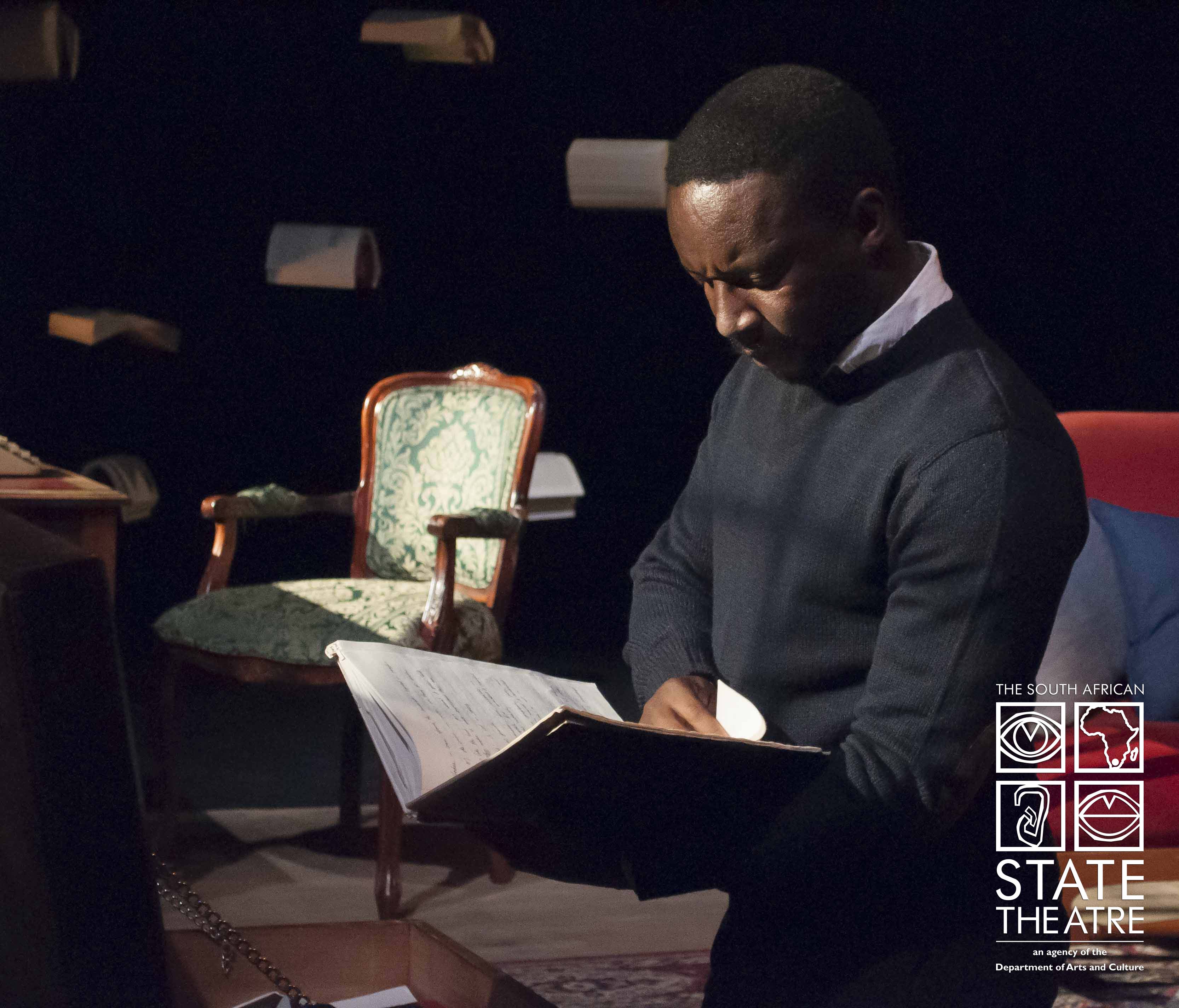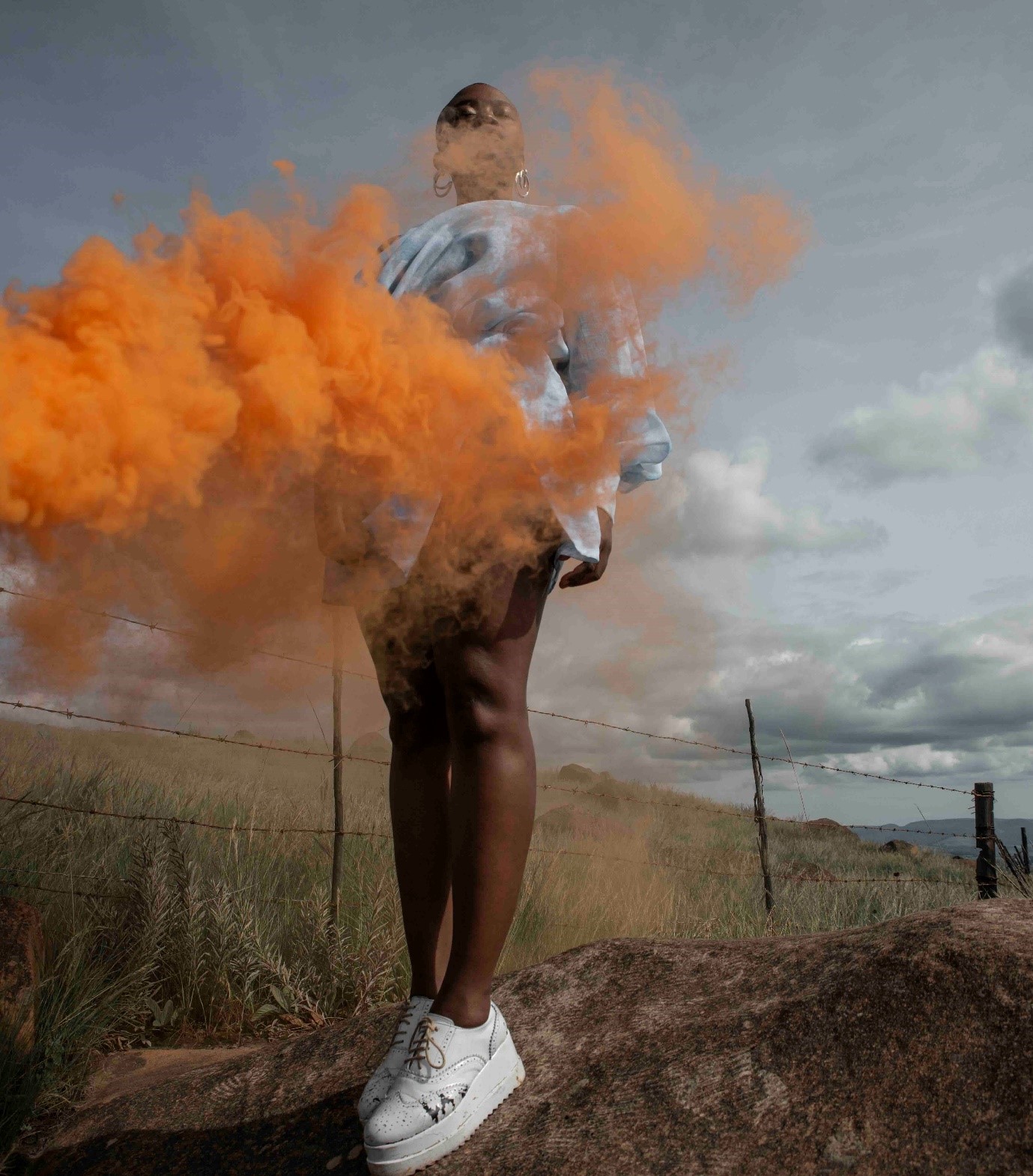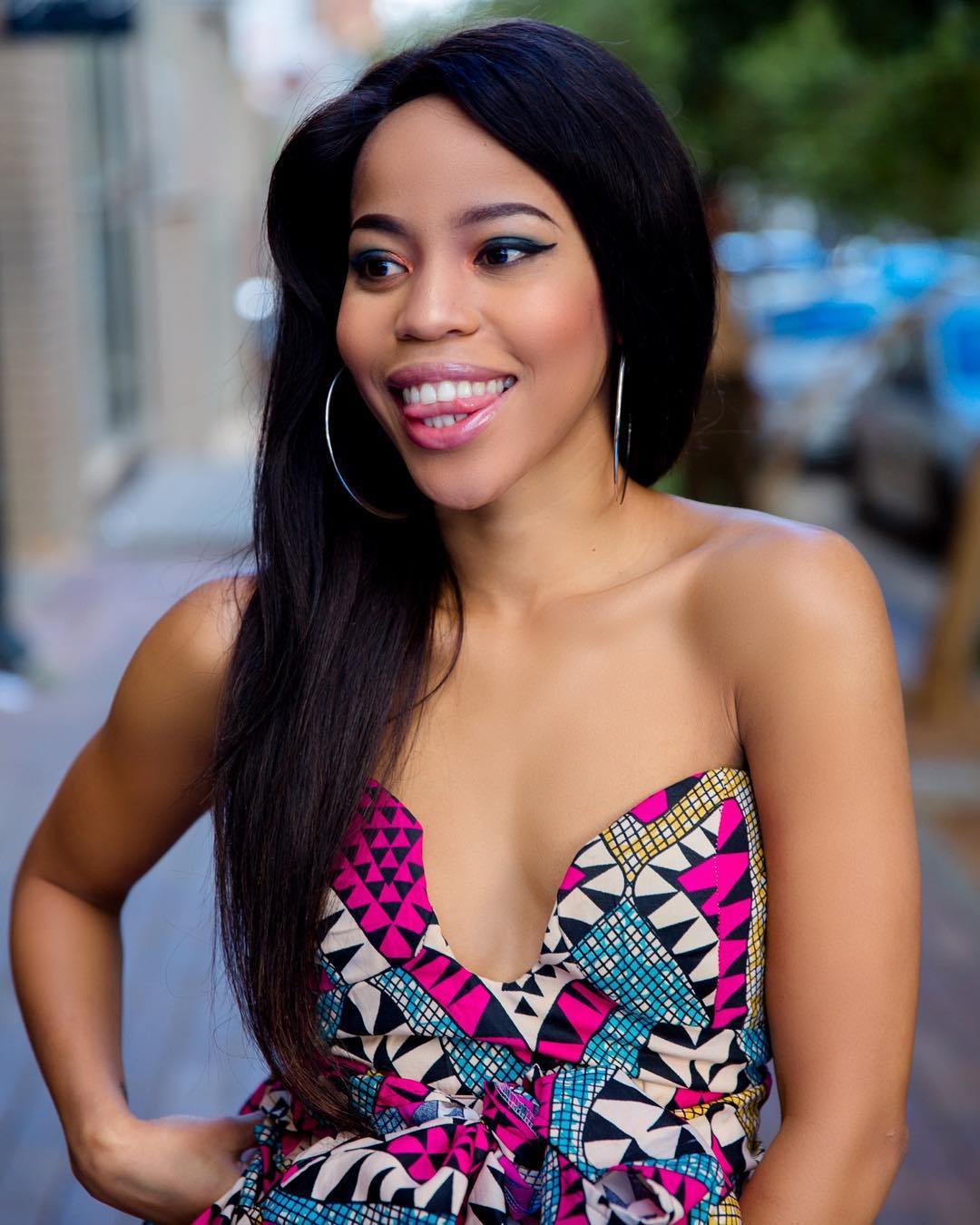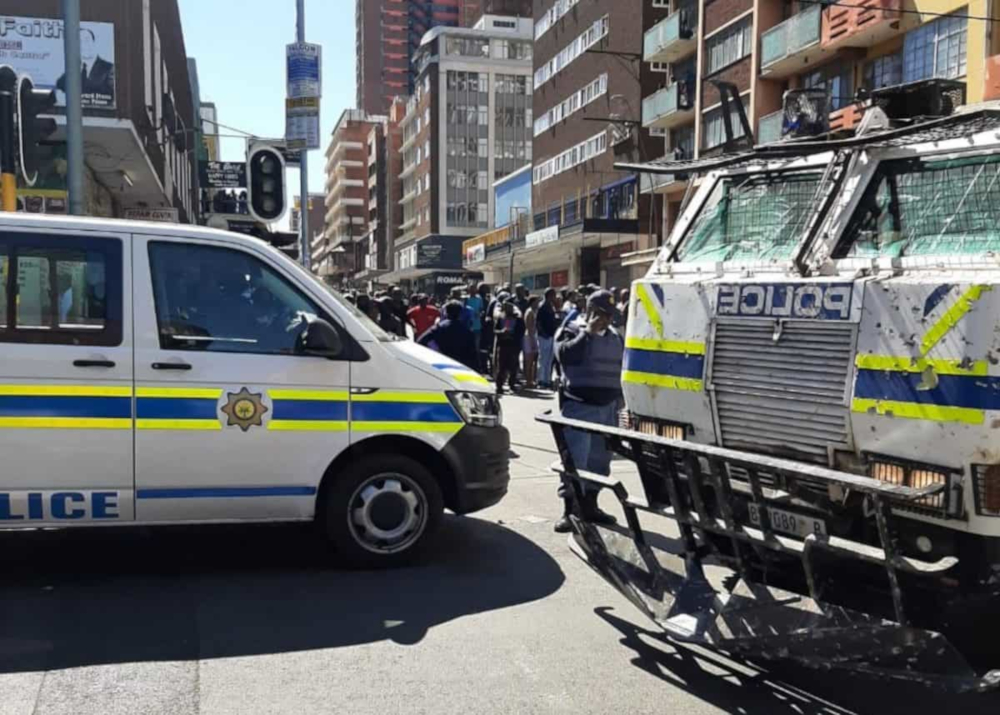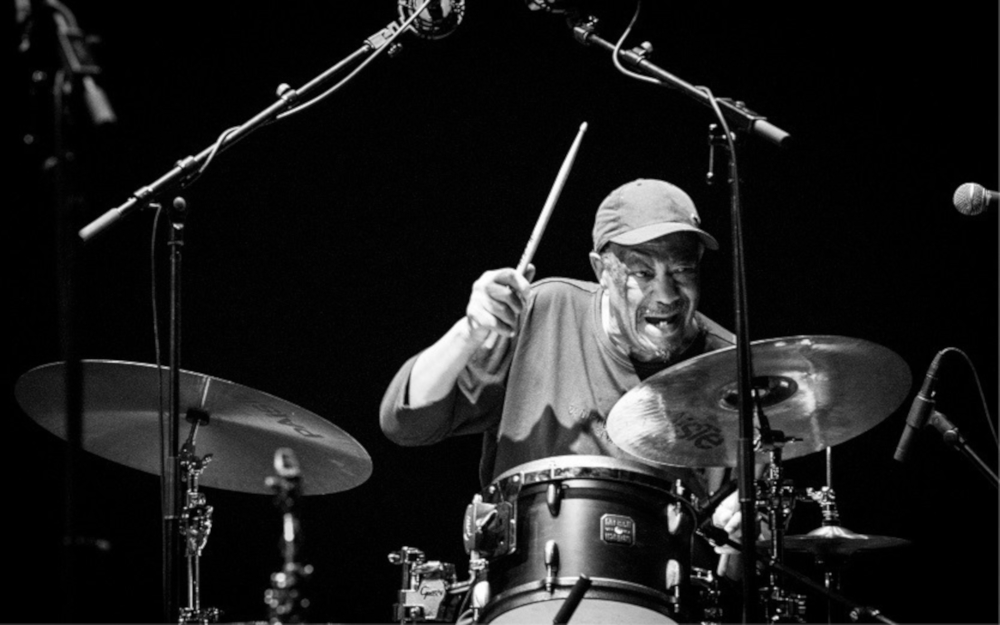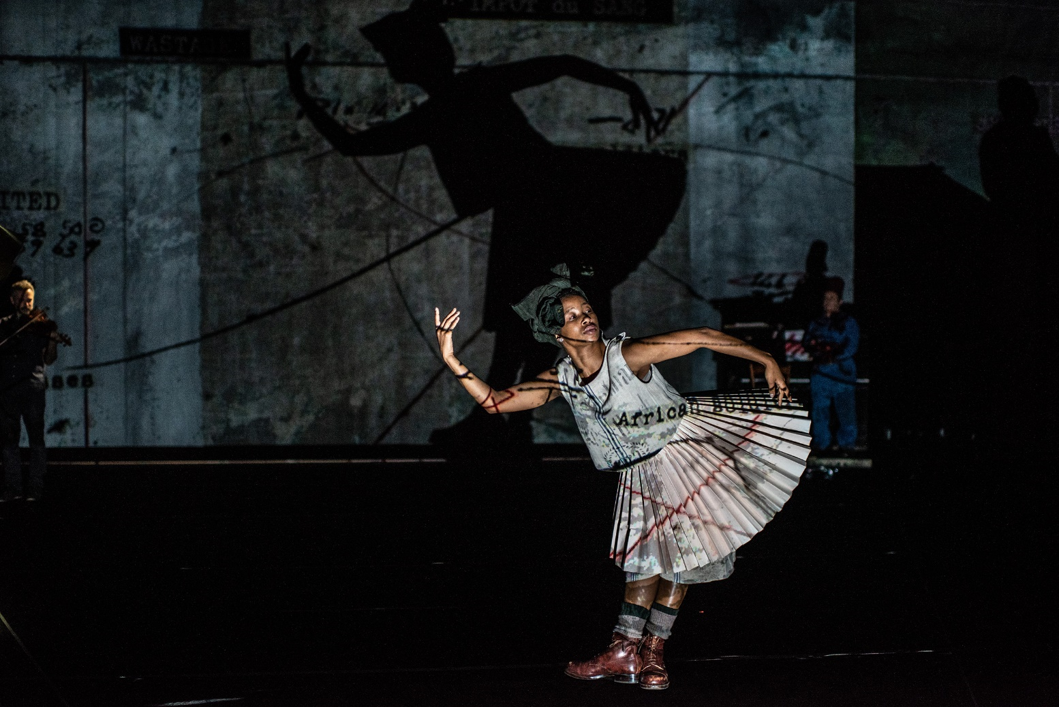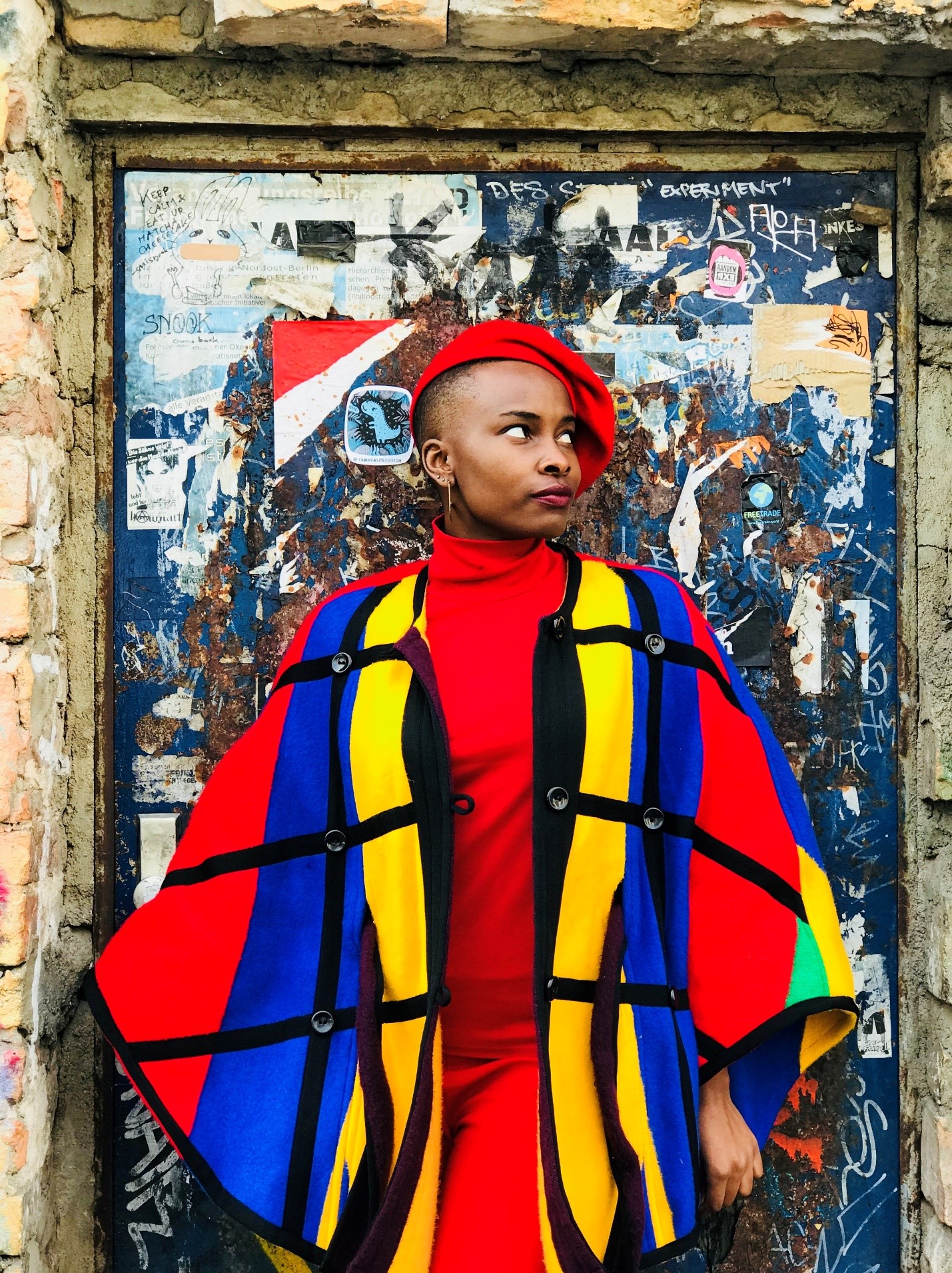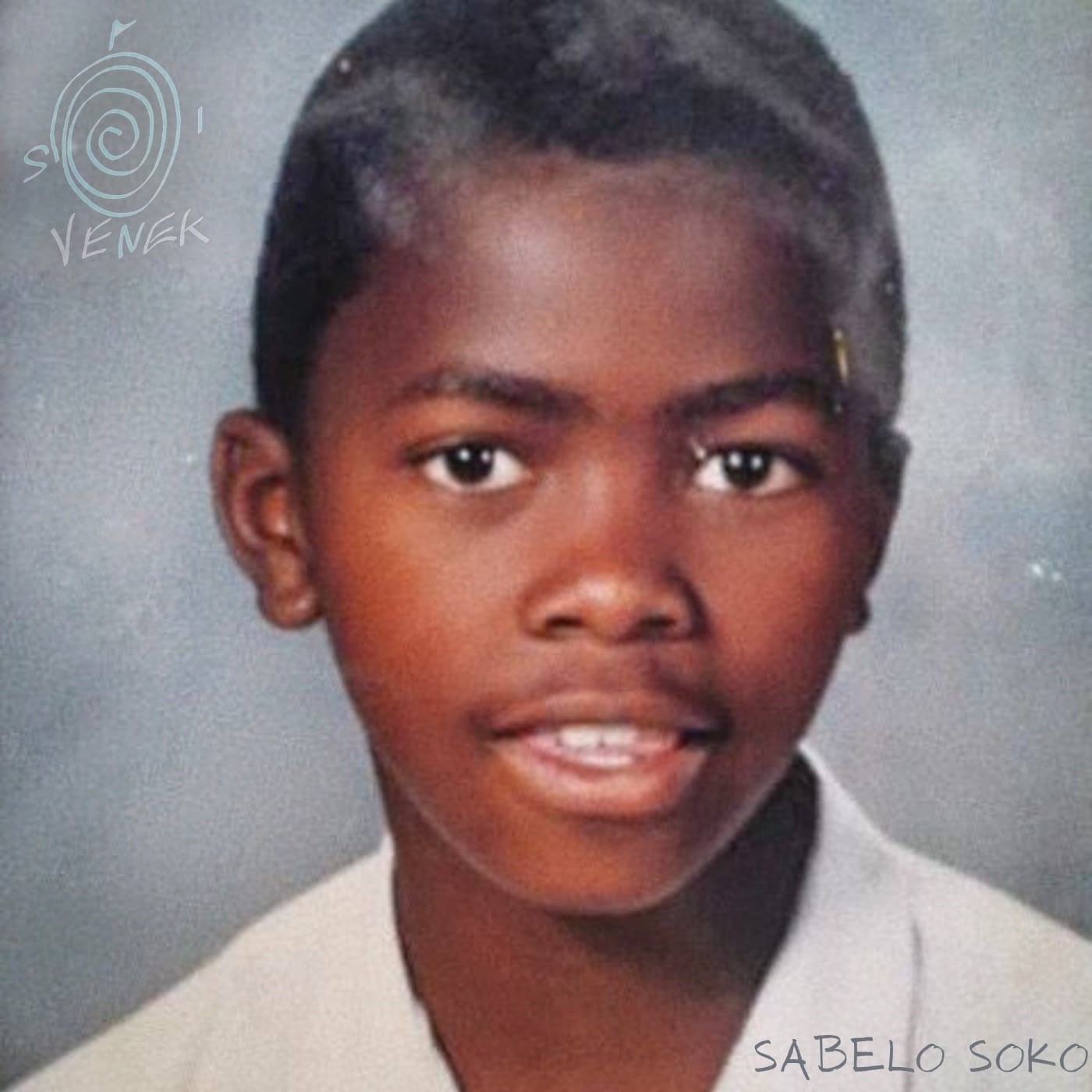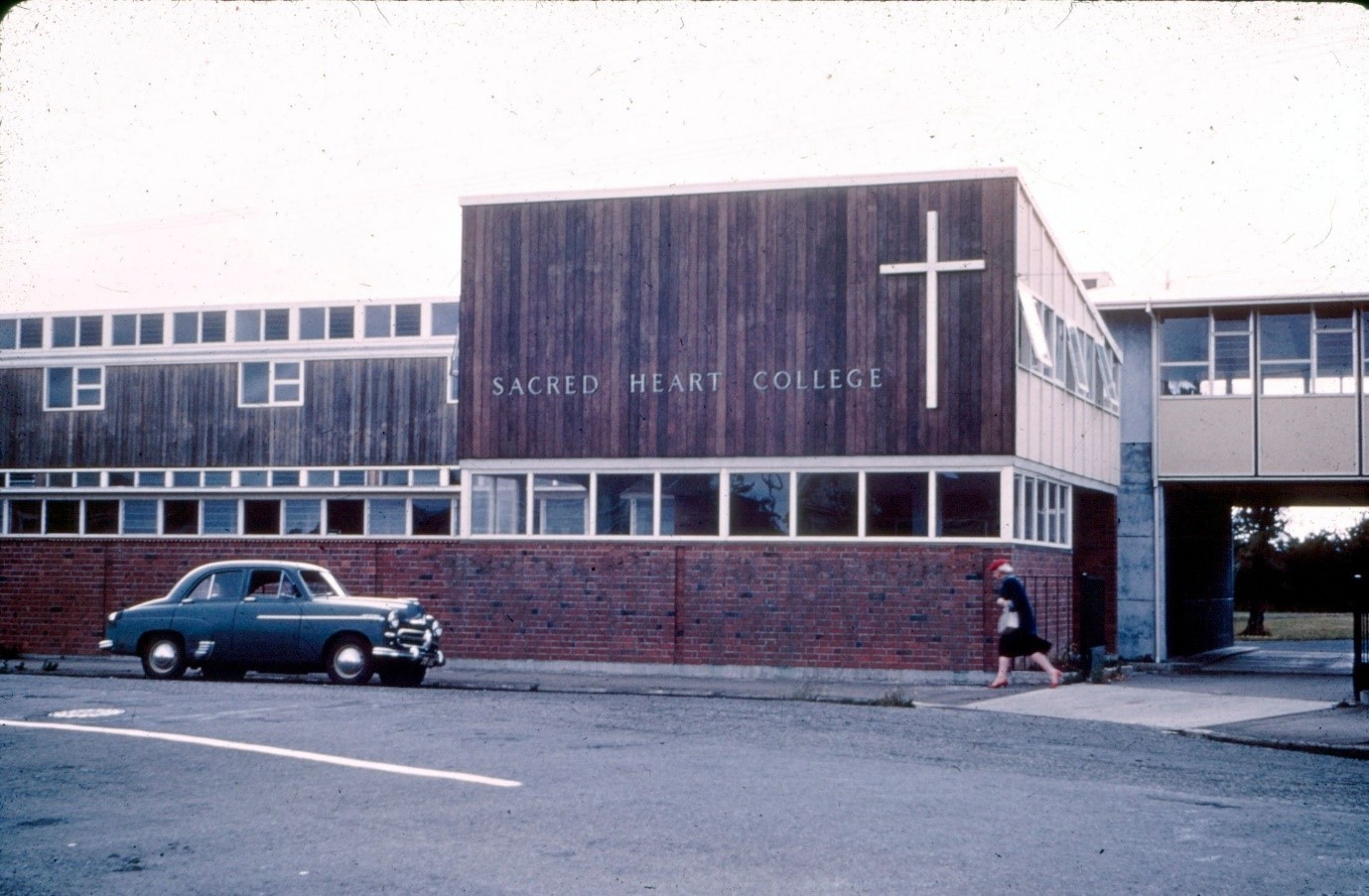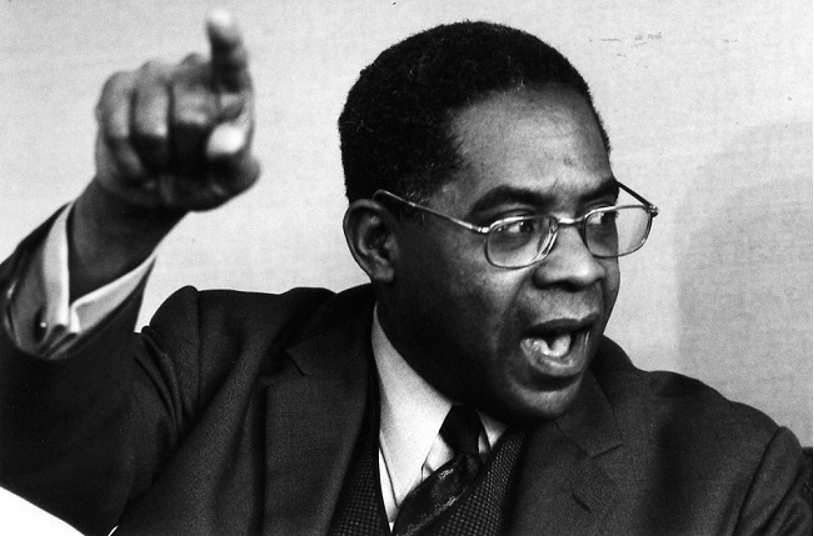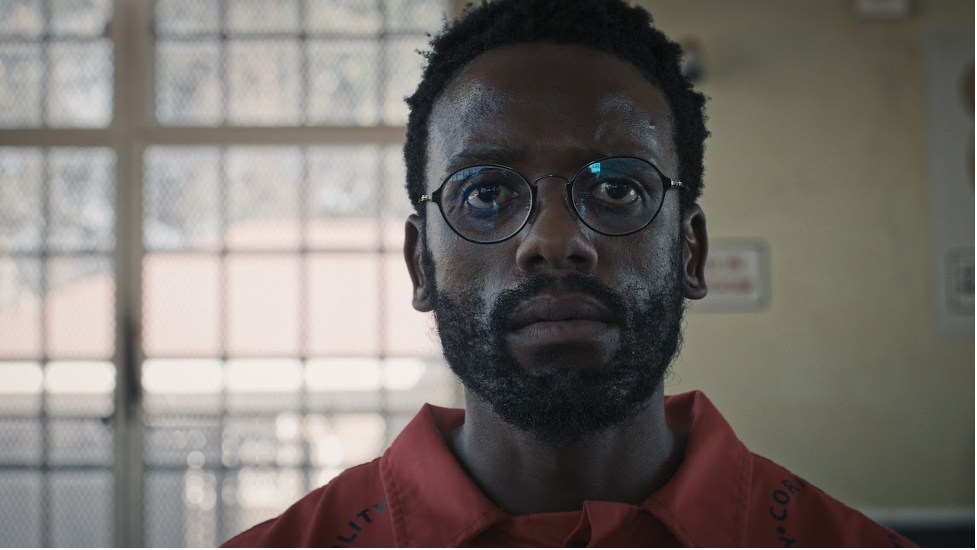It is an arresting artwork. The artist, Ayanda Mabulu, is sick and tired. In fact at this juncture, he describes his work as having transcended the artistic sphere and entered the realm of the spiritual. In addition to being sick and tired, Mabulu is agitated and angry. He is not concerned with niceties anymore and is calling a panga a panga and not a wood cutter.
And the subject of his fury? The governing party and the poor quality of life meted out to the black citizenry.
Ayanda Mabulu on the painting, Spear Down My Throat (The Pornography Of Power), as told to Kulani Nkuna.
I have been searching and trying to find ways to define and express how I feel about the political situation in the country. I feel like the country is being turned into a slut, and this young democracy of ours is being molested in many ways and raped continuously. I feel like our leaders have been turned into a lynch clan. We have been robbed out of what’s rightfully ours.
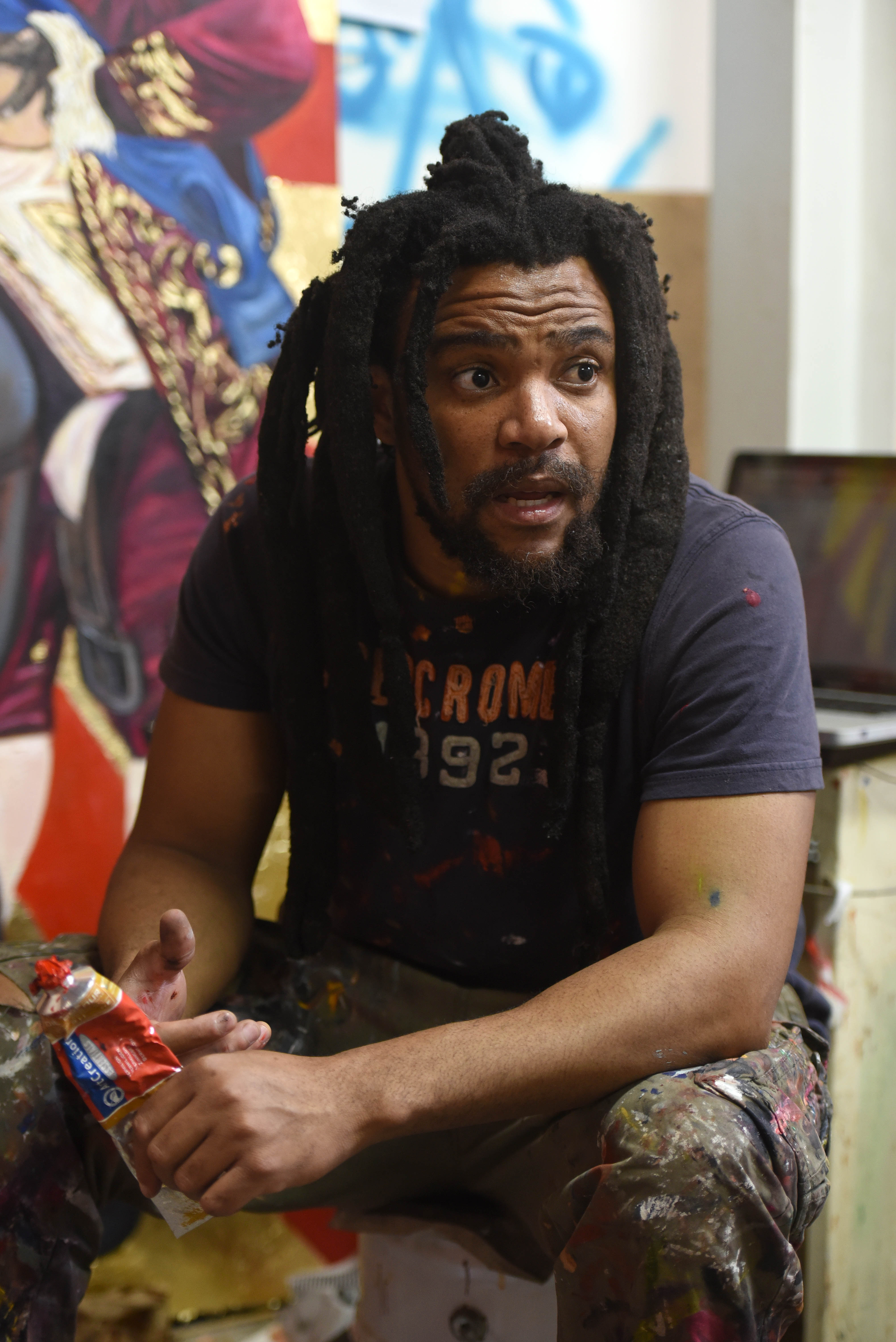
Things are happening in clear colour outside, so it is important for me to be direct and abandon any metaphorical Shakespearean mode of expression.
Looking at what is happening in parliament, it seems that every subject is a laughing matter. Hence I have depicted the president laughing uncontrollably in the work. Parliament resembles a circus, and in a circus you will see hyenas laughing. Hyenas will laugh at you as they dig deep into your skin. We are being eaten into small pieces in this country, and this pain is unbearable. The promises of 1994 are nothing but a distant fading memory. The only thing that you see today is these people enriching themselves.
The woman represents our country and all that she has to endure under this leadership. We are being milked dry, and you can imagine the torment involved when a dick is forcefully plunged into your throat, and at the same time you are being lynched. Then behind you is the hyena/colonial master, who is fucking you from behind while your breasts are being milked. How can you reconcile this type of existence with this so called democracy? The life of a black man is sad, it is hell. And even worse is that the architects of this hell are our leaders.
How do you justify a man relieving himself on the side of the road because he has no home, no toilet? We have lost our dignity.
Things should have changed, starting from Nelson Mandela all the way to the current people occupying positions of power. We are living in dire conditions with horrors happening to our people in the township on a daily basis. I can’t help but talk about these things. There is no need to be metaphorical about these issues, and trying to fit into artistic spaces where works with such subject matters are rejected by galleries.
We can’t be bullied by a minority of people who are in power. And that power belongs to us at the end of the day. If you look at what is written on the Freedom Charter you will realise that none of it is happening right now. Our society is a huge lie run by these mongrels, and this pisses me off.
People don’t listen to you when you shout these things in the streets because they are concerned with their own struggles. And this is when art becomes that source where you can be as honest as you want. My work has become more than art it is spiritual. It has transcended art as it speaks of that which is embedded deep in our psyche.
Sometimes people ask me why I, as a black man, portray black people in this manner. My understanding of being black goes deeper than skin colour. The elite are living lavishly at the expense of others, by lying to the people with their false promises. Do you call those people black? They are chameleons wearing black masks. If you look at the democracy right now you will find that these bastards are serving these hyenas, these colonial masters. We are still in the hands of the oppressor because our leaders have sold us out. We are being lynched everyday and it’s time for this to be said blatantly in its truest form. We know that politicians serve people who control the economy.
We shouldn’t keep polishing the image of Mandela’s corpse. His children are living in Houghton, and they are all millionaires. Children of the miners that got shot in Marikana are destitute. We fight heavy battles to survive or to pay that rent because we cannot turn back. We understand that the township was a dungeon that we were thrown into. We can’t continue like this.
I have arrived at a point where art should stop questioning, because the people we are questioning are not willing to give us answers. We will ask questions until our tongues are dry. So we need art that questions less and says things as they are in its truest form rather than doing art that questions. We can’t beat around the bush anymore. We can’t create art that suits the walls of these galleries. We can’t swallow our thoughts anymore. We need change and we can only inspire that change through being honest.
The condition of black people had to be addressed and that is what inspired this work.
Artists like Dumile Feni and Gerard Sekoto went abroad during apartheid because they understood the importance of freedom of expression. They went abroad because they wanted to have a voice. They didn’t go there because they were cowards; they went there because they needed to talk and to address what was happening in the country. Today we don't have to go abroad in order to address issues.
But in post 94 South Africa we silence ourselves by following standards that are set for us by the galleries. I feel like these spaces shouldn’t act as mortuaries for our art. They need to remember where they are standing, because this is our soil. And if they try to shut us down by telling us what to paint then we need to decolonise such spaces which is the role of my art.
Behind every act of activism there is a huge sense of love. My work is driven by love. And I can’t watch my people suffer at the hands of an establishment that is in power. I love my people. This painting is a call to reject our current condition as black people, to say that this will not happen in our country, and not in our name. We call for change.


